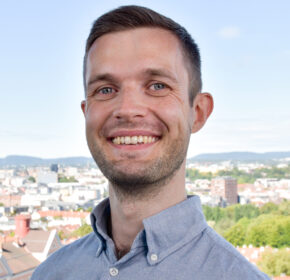HeaLS – Effects of the implementation of the interdisciplinary topic “Health and Life Skills” in schools
- Status: Aktiv
- Prosjektnr: 2710649
- Start: 01.10.2023
- Slutt: 30.09.2028
- Finansiering: ERC-European Research Council
Prosjektbeskrivelse
Mental illness is a major health burden worldwide and the health problems with the heaviest financial burden in Norway. Half of chronic mental disorders emerge before the age of 14, and mental health problems in youth are increasing. The Norwegian government has implemented the interdisciplinary topic «Health and life skills» (HLS) in primary and secondary education to provide pupils with competences to promote health and self-efficacy. School-based interventions may improve mental health and academic performance, but their effects depend on the quality of implementation. There are large variations in how HLS is implemented within and across schools due to lack of national guidelines and a reliance on teachers’ professional judgement. Delayed implementation for some grades and longitudinal nationwide registry linkages forms a natural experiment and rare opportunity to investigate the impact of diverse implementation methods of a politically determined, long-term and population-wide measure.
The aim of this interdisciplinary study is to evaluate how variations in the implementation of HLS relate to the intervention’s effect on pupils’ mental health, quality of life, school environment, academic performance and dropout. We will collect new HLS implementation data from 5-10,000 teachers/employees, 1,000 school principals and 180 school owners. Information from these key samples will be combined with prior linked data for 750 000 pupils from existing national registries and large surveys, including educational, health and background information.
The research group includes researchers specialized in education, mental and public health, health promotion, classroom research, school surveys, register-based studies and advanced multi-level methods.
The evaluation may affect further implementation and practice of HLS nationally and globally, and thereby promote pupils’ mental health and academic performance and thus also their future.
The study will collect new information regarding how HLS is implemented in Norwegian schools through questionnaires to all school owners and representative samples of Norwegian school leaders and teachers.
These new information regarding implementation will be combined with existing data from national registries and large survey studies.
All information is analysed, and results are presented, anonymized.
Deltagere

Egil Nygaard

Thea Knutsen Steinnes

Yuan Fang

Siri Hausland Folstad

Maud Edvoll

Maria Vinje Dodson

Kristina Kymre

Oda van Jole

Clara Marie Fides Timpe

Christine Sundgot-Borgen

Mette Johnsen Walker

Lene Merete Bakkedal

Glenn Steen-Haugen

Janne Øksnes

Jan Erik Buer

Alf Bjørge Aschim

Inga Brenne

Vigdis Holm

Ragnhild Eek Brandlistuen

Neil Humphrey

Anne Torhild Klomstén

Lisbeth M. Brevik

Gunnar Bjørnebekk

Ragnhild Bang Nes

Espen Røysamb

Eivind Ystrøm




